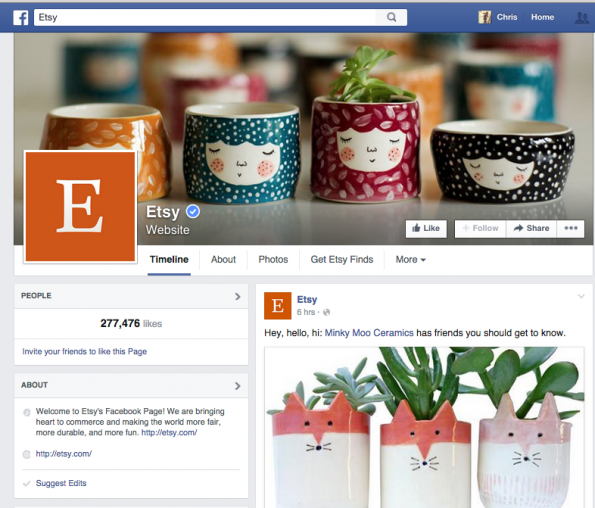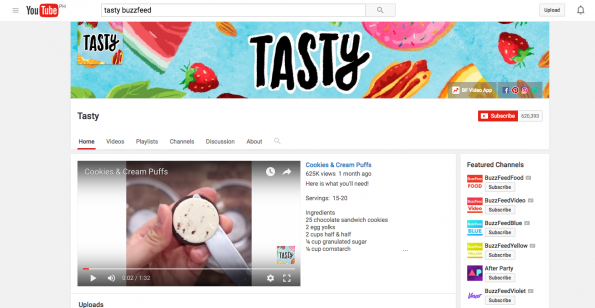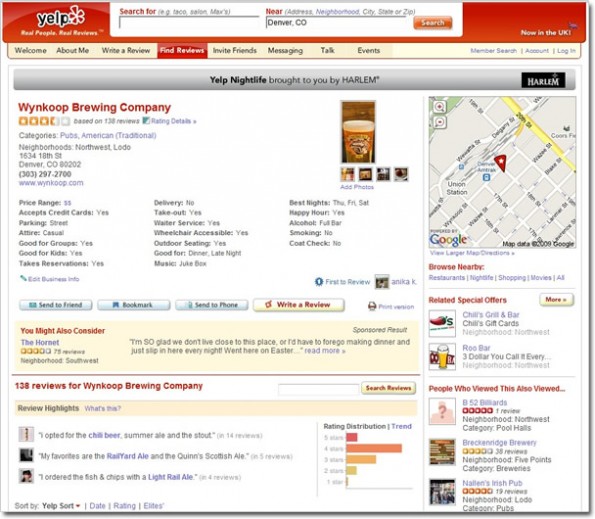5 Types of Social Media Platforms You Can Use for eCommerce
The idea that we live in a world where everyone is connected is a popular one. And today, with the advent of social media, the concept has been visualized and concretized.
Platforms like Facebook, Twitter, LinkedIn, etc. show your connection to friends and friends of friends. Every social media platform that you’re on helps you create an identity for yourself, gives you a way to share ideas and thoughts, and becomes a way to find likeminded individuals who share the same interests.
Social media is pretty straightforward for personal use–but it can be used into something useful and tangible for your business as well.
The key is in familiarizing yourself with the different types of social media and understanding what each can bring in terms of giving your ecommerce business a boost.
This post hopes to do just that–introduce the most popular types of social media and give you a brief understanding on how you can leverage on each one’s niche.
1. Relationship networks help maintain consistent presence online
Relationship social networks are by no means the oldest form of social media, but they are definitely the most recognizable and defining. The most prominent one being Facebook.
The concept is this, a relationship network will allow a person to keep their communication—from random thoughts to events attended, milestones to photos, messages, down to the music that you’re listening to—all on a single timeline.

Etsy’s Facebook page shows a quick background of the brand, the latest news about the site, and other relevant news.
Relationship networks can span everything from professional relationships down to romantic ones.
So, while Facebook becomes a way for you to connect to friends and friends of friends and helps you find new ones, a site like LinkedIn is specifically made to highlight your professional capacity and build your professional network.
Here’s a tip: For ecommerce companies, maintaining a Facebook account, has become a must. Because of its reach, it’s one of the easiest ways to create a personal connection and build a relationship with your audience.
It can help you–
- Sustain consistent presence online.
- Update your followers on the latest news about your brand.
- Share information relevant to your audience.
- Give your audience an opportunity to reach out to you.
2. Media sharing networks offer an engaging point of contact with your audience
Product-centric ecommerce businesses have a lot to gain from media sharing networks.
This is a type of social network driven by a specific medium. Instagram is by far the most popular one for images, as is Flickr or Tumblr. Then there’s Vimeo or YouTube for video. For bite-sized versions, there’s even Vine and Snapchat.

Popular food and content site Tasty draws users across various demographics by simplifying the cooking process into short video snippets available on YouTube.
Here’s a tip: When trying to figure out if these platforms should be a part of your social media marketing strategy, it’s important to consider what you want to say and who you want to say it to. YouTube, for instance, has a very expansive demographic reach, as opposed to something like Snapchat, where it’s largely composed of Millennial users.
But beyond that, it’s important to remember that are certain standards that you should always consider when making the most out of media sharing networks—
- Tagging relevant accounts could be helpful, so do you research.
- Hashtags are very useful for media sharing networks and gives you major exposure.
- Take quality images or videos to make your content compelling.
- As much as possible, keep it short and simple—remember that the online attention span is very short.
3. Never underestimate the power of user generated reviews from major review networks
In an age where location-based and social review sites like Yelp are getting a bigger following, businesses should be more conscious about how opinions shared on these platforms could influence their business.

Do not underestimate the influence of user reviews for your conversions.
Here’s a tip: Today, more users look to the internet to see what others are saying about a particular product and user reviews have become a valuable factor for decision making. The potential of review networks is enormous and if you’re not already on them, you should definitely sign up now. Do not worry too much about the risk of negative reviews–if you’ve made a good product and make sure to deliver great service, you will reap its benefits by empowering your consumers to tell the world about it.
Keep the following in mind though–
- Bad reviews, as long as it doesn’t outweigh the good ones, will actually help your business build more credibility. No product is perfect, and consumers know that.
- Reviews that are too good to be true (meaning if your page receives ONLY good reviews) tend to be seen as manipulated data or heavily censored.
- When someone raises a concern regarding your product or service, be sure to address it immediately. Talk to your customers; they will appreciate it.
4. Discussion forums are great for spurring in-depth discussions and gathering insight
Before people discussed ideas and thoughts on Facebook timelines, people expressed their opinions on forums. Discussion forums are actually one of the oldest forms of social media—but because of the rise of the different new platforms, it’s been relegated to the wayside. But platforms like Quora or Digg are designed specifically to facilitate brief or long-winded discussions about a particular topic.

Forums such as Quora offer marketers and users a way spur conversations about services and products.
Here’s a tip: The key here is in finding the right forum to organically pitch you ideas in so that it becomes a way for other people on the forum to rally behind it.
Remember that–
- As a business trying to promote something on a forum, make sure that your product or service is a relevant part of the discussion when you start raising it in the discussion.
- Try very hard to avoid obvious self-promotion.
- Seek out users who can be brand ambassadors who will speak about your services favorably as they will be instrumental in gathering a bigger audience for what you have to say.
5. Blogging platforms streamlines and centralizes what you have to say
There is a lot of content to be found online; and for ecommerce businesses, blogging still stands as one of the most useful ways potential customers can learn more about your product.

Fashion brand Alice + Olivia is killing it at the fashion blog game with their mix of useful style tips that introduce audiences to the brand’s distinct aesthetic.
Here’s a tip: The important thing to remember is that to stand out amid the clutter and noise of the internet, you have to produce content that is well-crafted and relevant. Don’t just create a blog on WordPress or Blogger for the sake of having one. Make it work for you. That’s what it is there for.
When done correctly, blogs can serve as—
- A way for you to become a thought leader on a specific topic or a particular industry.
- Support the relevance of a particular product and service.
- Inform your customers.
This list only scratches the surface of how social media can support your ecommerce marketing. There are more granular and specific sites that will ultimately help you make your presence felt among your users and your relevance known to them. And if you know of any and would like to share it with us, leave a comment below.
Share This Story
2 Comments
Leave A Comment
Get the latest growth ideas, strategies, and best practices delivered to your inbox.
Quick read that helps 7000+ subscribers.










I am surprised to see the list of social media platforms for e-commerce. I appreciate the efforts & many would be happy as more than enough has been provided. Thanks for the comprehensive article.
You got a nice write up here and I really want to thank you for sharing this post as it contains a lot of information, keep up this good work.